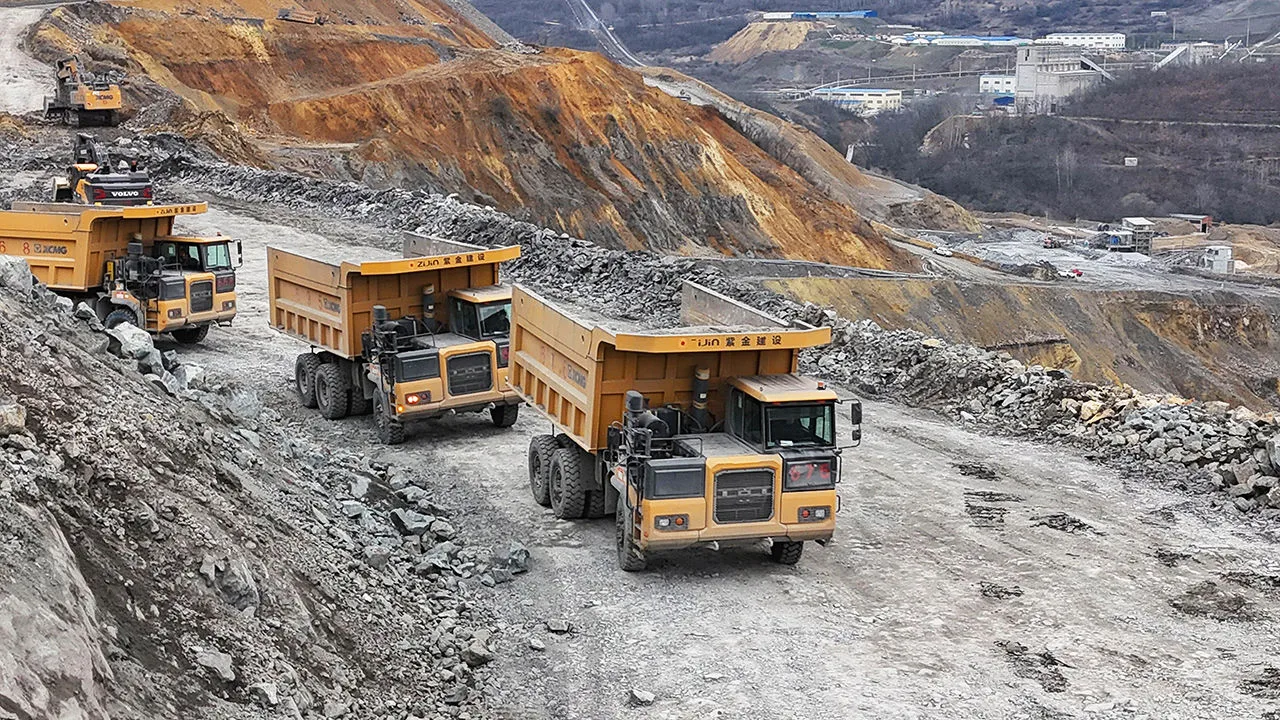China has imposed strict export restrictions on key rare earth metals, including gallium, germanium, and antimony, in a move widely seen as a countermeasure to the United States’ tightening of export controls on advanced chip technology. The new regulations, effective December 1, 2024, are the latest development in the intensifying economic and geopolitical rivalry between the two global powers.
These rare earth elements are essential for manufacturing semiconductors, military equipment, and other high-tech products, making China’s move a critical blow to global supply chains that depend heavily on Beijing’s dominance in the sector.
China’s Rare Earth Dominance
China has spent decades positioning itself as the world leader in rare earth minerals. The country controls approximately 60-70% of global rare earth extraction and nearly 90% of the processing capacity. This dominance stems from strategic government policies, including subsidies for the rare earth industry and lax environmental regulations, which have allowed China to undercut international competitors and monopolize the market.
Gallium and germanium, two of the metals now restricted, are critical for producing semiconductors, LEDs, and fiber-optic communication systems. Antimony, another restricted material, is essential for manufacturing flame retardants, certain batteries, and advanced alloys used in military equipment.
By leveraging its near-monopoly, China has positioned itself to disrupt global production lines in sectors ranging from consumer electronics to national defense, raising significant concerns about the vulnerability of international supply chains.
Strategic Motivations Behind the Ban
China’s decision to restrict exports of these rare earth metals is widely interpreted as a retaliatory measure against the United States’ escalating restrictions on technology exports to Beijing. In recent months, Washington has implemented sweeping controls on advanced semiconductor technology, citing concerns over China’s military advancements and potential misuse of American technology.
“The rare earth export bans send a clear signal: Beijing is willing to weaponize its dominance in critical minerals to counter U.S. policies,” said a senior analyst at the Center for Strategic and International Studies (CSIS). “This is not just about economics—it’s a strategic maneuver in a broader geopolitical contest.”
Global Implications of the Export Ban
Disruption to Supply Chains
China’s export restrictions are expected to have significant repercussions for industries reliant on these materials. With limited alternative sources for gallium, germanium, and antimony, companies across the globe may face shortages and rising costs. These challenges could impact the production of critical technologies, including smartphones, electric vehicles, and military hardware.
Economic Fallout
The restrictions could also exacerbate inflationary pressures in high-tech industries as manufacturers scramble to find alternative suppliers or invest in new mining operations. Analysts warn that such disruptions could ripple through the global economy, further straining relations between the world’s two largest economies.
National Security Concerns
The strategic importance of rare earth metals extends beyond economics. These materials are vital for advanced military systems, including missile guidance systems, radar, and satellite technology. China’s export bans could hinder the ability of U.S. and allied militaries to maintain technological superiority, raising serious national security concerns.
U.S. Response and Strategic Alternatives
The United States has been working to reduce its dependence on Chinese rare earth supplies. Recent initiatives include provisions in the National Defense Authorization Act aimed at boosting domestic mining and processing capabilities. However, such efforts face significant challenges, including environmental regulations, high production costs, and the time required to develop new facilities.
Allied Partnerships
To mitigate reliance on China, the U.S. has also strengthened partnerships with allies like Australia, Canada, and Japan. These countries have substantial rare earth reserves and are collaborating with the U.S. to develop alternative supply chains. Joint ventures, such as Lynas Rare Earths’ processing facility in Texas, exemplify these efforts.
Innovation and Recycling
Another avenue being explored is the development of technologies to recycle rare earth elements from existing products, reducing the need for new extraction. Investments in research and development could also lead to the discovery of synthetic alternatives or more efficient usage of these critical materials.
A History of Rare Earth Weaponization
China’s use of rare earth metals as a geopolitical tool is not new. In 2010, during a territorial dispute with Japan, Beijing temporarily halted rare earth exports to the country. This move caused a global spike in prices and highlighted the risks of overreliance on Chinese supplies. The incident prompted nations worldwide to reassess their rare earth strategies, but progress in diversifying supply chains has been slow.
The current export bans serve as a stark reminder of Beijing’s willingness to leverage its dominance in critical minerals to achieve strategic objectives. Experts warn that this latest development could accelerate global efforts to reduce reliance on Chinese rare earths, much like the earlier embargo prompted Japan to invest heavily in alternative sources.
Balancing Risks and Opportunities
While China’s restrictions create immediate challenges, they also present an opportunity for other nations to invest in their own capabilities. The crisis underscores the need for a coordinated global effort to develop secure, sustainable, and diversified supply chains for rare earth elements.
“China’s actions have highlighted a critical vulnerability in the global economy,” said a senior researcher at the Brookings Institution. “The question now is whether the U.S. and its allies can turn this crisis into an opportunity to build resilience.”
Looking Ahead
As the U.S. and its allies navigate the fallout from China’s rare earth export restrictions, the stakes are higher than ever. The ongoing tech and trade war between the two superpowers is reshaping global supply chains and redefining the dynamics of international relations.
For now, China’s export bans serve as a potent reminder of the strategic value of rare earth metals and the importance of reducing reliance on a single dominant supplier. The coming months will test the ability of nations to adapt, innovate, and collaborate in the face of mounting challenges.
Sources:
- Gateway Pundit: China weaponizes rare earth metals in trade war
- New York Post: Rare earths and U.S.-China tensions
- Reuters: Global rare earth supply chain strategies

